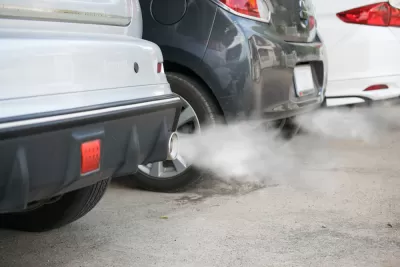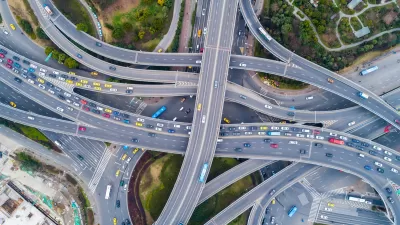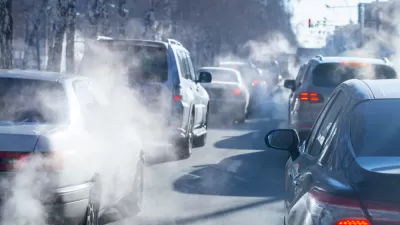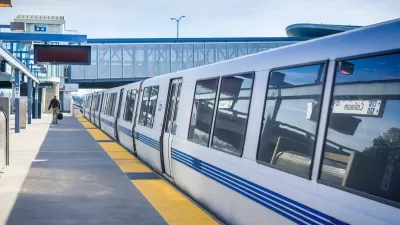A federal proposal that would require states to monitor and set targets to cut greenhouse gas emissions, praised by Democrats, is being called “unworkable” by many Republican states.

Republican-led states are pushing back on a proposal to monitor and curb greenhouse gas emissions from the nation’s highways, calling it federal overreach and arguing that the plan is “illegal and unworkable.” As Daniel C. Vock reports for Route Fifty, the proposal “would require states and metropolitan planning organizations to establish targets for cutting greenhouse gas pollution from vehicles” without implementing any enforcement mechanism. Opponents argue that the FHWA does not have the authority to make such requirements.
According to Vock, “Another major point of friction is over the ability and authority of state transportation departments to handle the requirements.” A statement from the Oklahoma Department of Transportation stated, “The mission and purpose of the Oklahoma Department of Transportation does not include reducing [greenhouse] gasses.”
“The Biden administration’s framework calling for reductions of those pollutants would disproportionately harm rural and fast-growing states, [opponents] also argued,” pointing out that many people in rural states have to drive longer distances for everyday needs.
If this all sounds familiar, it’s because the debate echoes a similar fight over an Obama-era policy revoked by the Trump administration.
The proposal is supported by many Democratic states, the California Air Resources Board (CARB), and the National Association of City Transportation Officials (NACTO), among others.
FULL STORY: States Divided on Setting Targets for Curbing Highway Emissions

Maui's Vacation Rental Debate Turns Ugly
Verbal attacks, misinformation campaigns and fistfights plague a high-stakes debate to convert thousands of vacation rentals into long-term housing.

Planetizen Federal Action Tracker
A weekly monitor of how Trump’s orders and actions are impacting planners and planning in America.

San Francisco Suspends Traffic Calming Amidst Record Deaths
Citing “a challenging fiscal landscape,” the city will cease the program on the heels of 42 traffic deaths, including 24 pedestrians.

Defunct Pittsburgh Power Plant to Become Residential Tower
A decommissioned steam heat plant will be redeveloped into almost 100 affordable housing units.

Trump Prompts Restructuring of Transportation Research Board in “Unprecedented Overreach”
The TRB has eliminated more than half of its committees including those focused on climate, equity, and cities.

Amtrak Rolls Out New Orleans to Alabama “Mardi Gras” Train
The new service will operate morning and evening departures between Mobile and New Orleans.
Urban Design for Planners 1: Software Tools
This six-course series explores essential urban design concepts using open source software and equips planners with the tools they need to participate fully in the urban design process.
Planning for Universal Design
Learn the tools for implementing Universal Design in planning regulations.
Heyer Gruel & Associates PA
JM Goldson LLC
Custer County Colorado
City of Camden Redevelopment Agency
City of Astoria
Transportation Research & Education Center (TREC) at Portland State University
Jefferson Parish Government
Camden Redevelopment Agency
City of Claremont





























